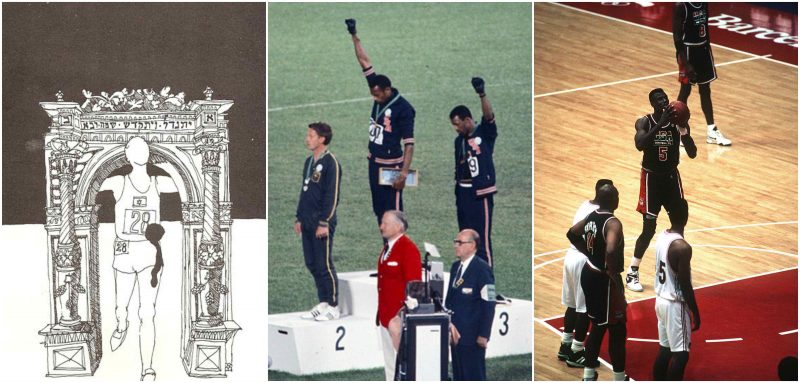Paris, 1900: First female athletes
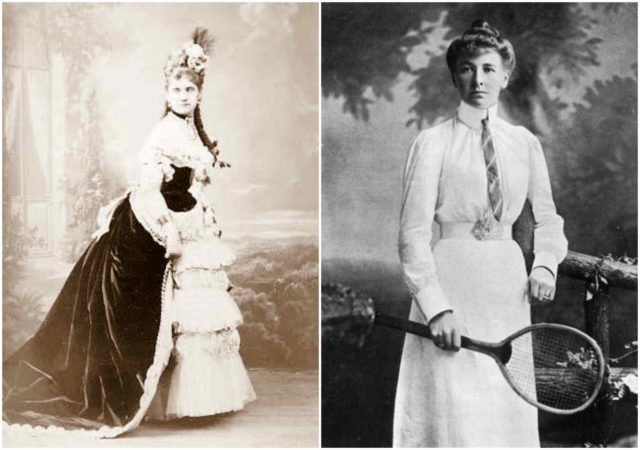
Women first competed at the 1900 Paris Games. Women were allowed to compete in lawn tennis and golf, though there were three French women competing in croquet and there was at least one female sailor as part of a mixed crew. It is commonly believed that first woman to win an Olympic event was England’s Charlotte Cooper, who won the tennis singles title, however, Swiss sailor Hélène de Pourtalès won a gold medal as part of a team in sailing earlier than this. The 2012 Olympic Games in London were the first Olympics where every participating country included female athletes. They were also the first Olympics in which women competed in all sports in the program.
Berlin, 1936: Owens breaks records
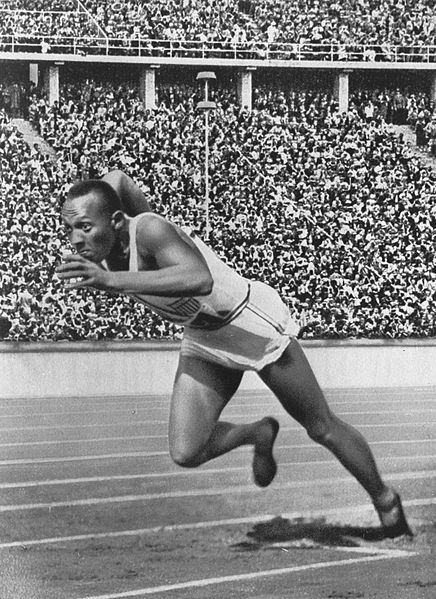
James Cleveland “Jesse” Owens was an African-American track and field athlete and four-time Olympic gold medalist in the 1936 games. Owens’s success at the games represented a counter to Adolf Hitler, who was using the games to show the world a resurgent Nazi Germany. He and other government officials had high hopes that German athletes would dominate the games with victories. Meanwhile, Nazi propaganda promoted concepts of “Aryan racial superiority” and depicted others, including those of African descent, as inferior. Owens countered this by winning four gold medals. Owens later befriended his German competitor in the long jump, Luz Long, and the pair’s lap of honor became a symbol of the triumph of sportsmanship over Nazi ideology.
London, 1948: Wheelchair athletes compete
![Left photo - Jewish-German born Dr. Ludwig Guttmann of Stoke Mandeville Hospital,[5] who had been helped to flee Nazi Germany by the Council for Assisting Refugee Academics (CARA) in 1939. Source, Right photo - IPC logo. Source](https://www.thevintagenews.com/wp-content/uploads/sites/65/2016/08/London-1948-640x306.jpg)
Rome, 1960: Television, and scandals
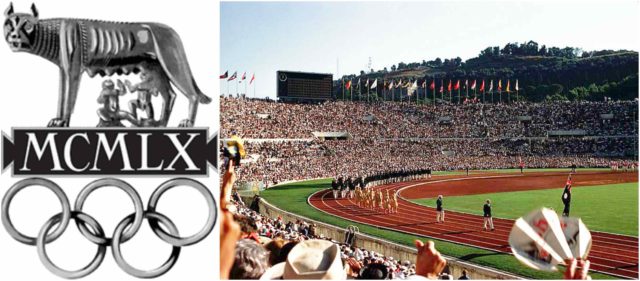
As the first Olympics ever to be televised and include a brand endorsement by an athlete, the Rome Games ushered in a new era of commercialism and changed the way the world viewed its Olympians. The Games also spotlighted a negative side of the competition with the first doping scandal, revealing how far some athletes would go to bring home the gold.
Mexico City, 1968: Civil-rights protest
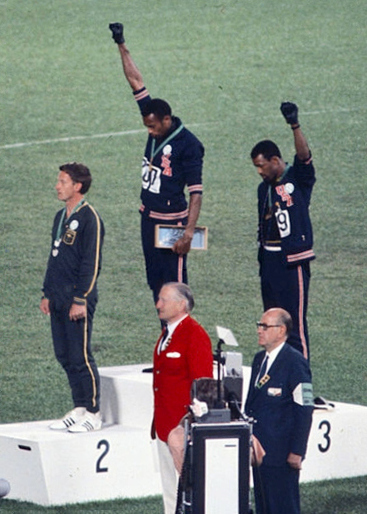
At the height of the civil rights movement in the U.S., black American athletes were encouraged to boycott the Games. Instead, African-American sprinters John Carlos (right) and Tommie Smith (left) staged a non-violent protest by raising their fists in a Black Power salute while the national anthem played during their medal ceremony. Although they were consequently suspended from the Olympic Village, their silent demonstration brought the American battle over civil rights to the international stage.
Munich, 1972: Terror replaces peace
![Left photo - One of the most reproduced photos taken during the siege captured a kidnapper on the balcony attached to Munich Olympic village Building 31, where members of the Israeli Olympic team and delegation were quartered.. Source, Right photo - Memorial plaque in front of the Israeli athletes' quarters. The inscription, in German and Hebrew, translates as:"The team of the State of Israel stayed in this building during the 20th Olympic Summer Games from 21 August to 5 September 1972. On 5 September, [list of victims] died a violent death. Honor to their memory". Source](https://www.thevintagenews.com/wp-content/uploads/sites/65/2016/08/Munich-1972-640x267.jpg)
Although the Olympics continued and the incident led to increased security, the message of international peace promoted by the Games was permanently damaged.
Montreal, 1976: African nations boycott
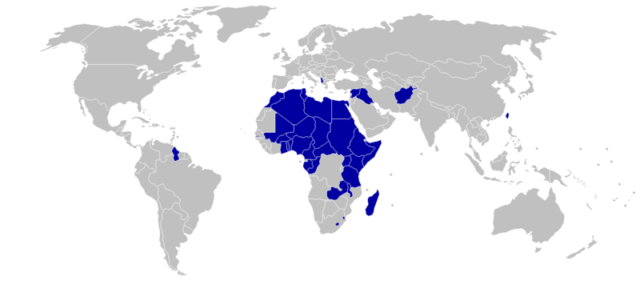
Most sovereign African nations (and a few others) boycotted the Montreal Games when the International Olympic Committee (IOC) would not support the banning from a competition of countries whose athletes had participated in sporting events in South Africa as long as apartheid continued, as some other international sporting organizations had. The New Zealand rugby team had been touring South Africa during apartheid and were excluded from international sporting events due to the implementation of the anti-apartheid policy. This marked the first of several politically-motivated boycotts of the Olympics.
Moscow, 1980: U.S. boycotts, hosts alternate games
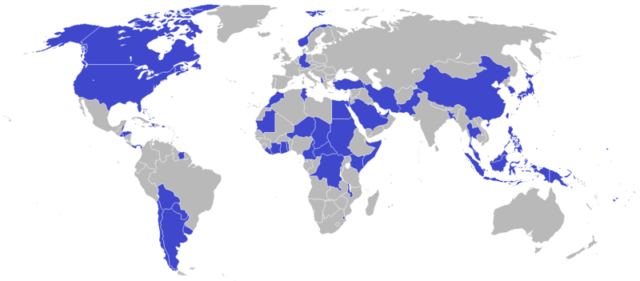
The Soviet invasion of Afghanistan in December 1979 spurred President Jimmy Carter to issue an ultimatum on 20 January 1980: if Soviet troops did not withdraw from Afghanistan within one month the United States would boycott the Moscow Olympics in summer 1980. So, the U.S. did not participate in the Olympics that summer, and instead hosted the Liberty Bell Classic in Philadelphia as an alternative competition for athletes of countries supporting the boycott.
Barcelona, 1992: Pros play the Olympics
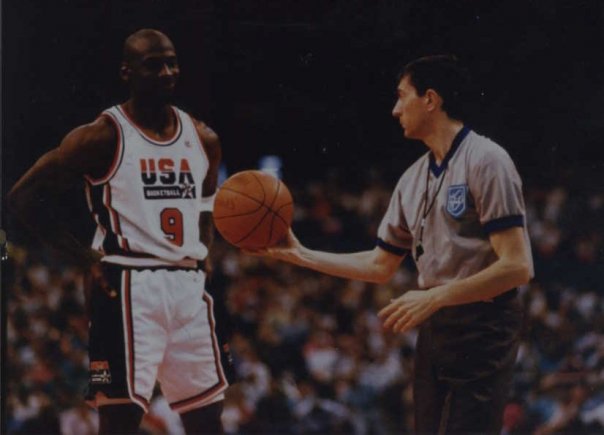
The 1992 U.S. Men’s Olympic basketball team, nicknamed the “Dream Team” for its impressive line-up of the biggest names in basketball — Michael Jordan, Charles Barkley, and Patrick Ewing to name a few — was the first time active NBA players were recruited for an Olympic team. The team crushed the competition as it made its way towards the final (winning all eight games) and ultimately defeated Croatia to bring home the gold medal. Still today, the Dream Team is widely celebrated as the greatest team ever assembled in any sport.
Atlanta, 1996: Games turn 100 with Ali

Despite his struggles with Parkison’s disease, former heavyweight boxing champion, and Olympic gold medalist Muhammad Ali lit the Olympic flame during the opening ceremony of the 1996 Atlanta Games and received a replacement gold medal for his boxing victory in the 1960 Summer Olympics. It was an emotional start to the Olympics’ Centennial.
Sydney, 2000: North and South Korea unite

In a short-lived moment of alliance, North and South Korea marched together for the first time in Sydney’s opening ceremony. Rather than carry their respective national flags, the North and South Korean teams (in identical uniforms) joined hands and waved a unification flag featuring a blue map of Korea.
Athens, 2004: Medal design corrected
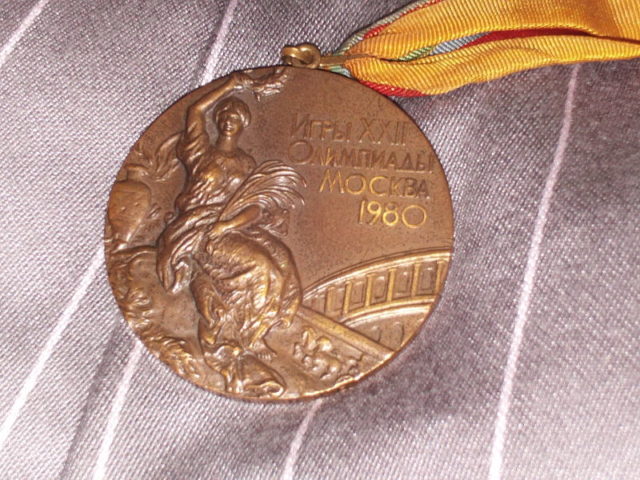
A new medal obverse was introduced at these Games, replacing the design by Giuseppe Cassioli that had been used since the 1928 Games. This rectified the long lasting mistake of using a depiction of the Roman Colosseum rather than a Greek venue. The new design features the Panathenaic Stadium. The 2004 summer games were hailed as “unforgettable, dream games” by IOC President Jacques Rogge.
Beijing, 2008: Phelps takes most gold ever
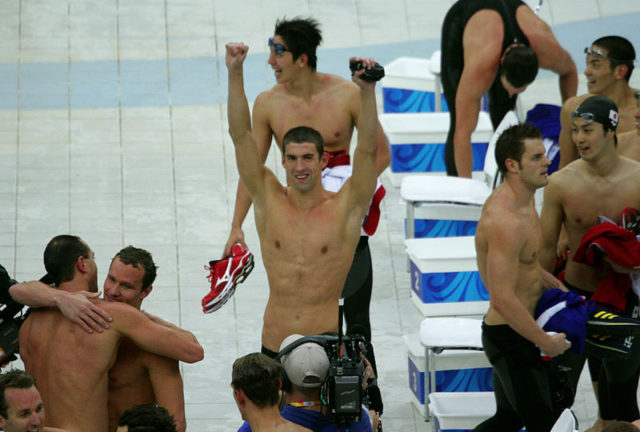
The American competitive swimmer Michael Fred Phelps II is the most decorated Olympian of all time, with a total of 28 medals. Phelps also holds the all-time records for Olympic gold medals (23), Olympic gold medals in individual events (13), and Olympic medals in individual events (16). In winning eight gold medals at the 2008 Beijing Games, Phelps broke fellow American swimmer Mark Spitz’s record of 7 first-place finishes at any single Olympic Games.
